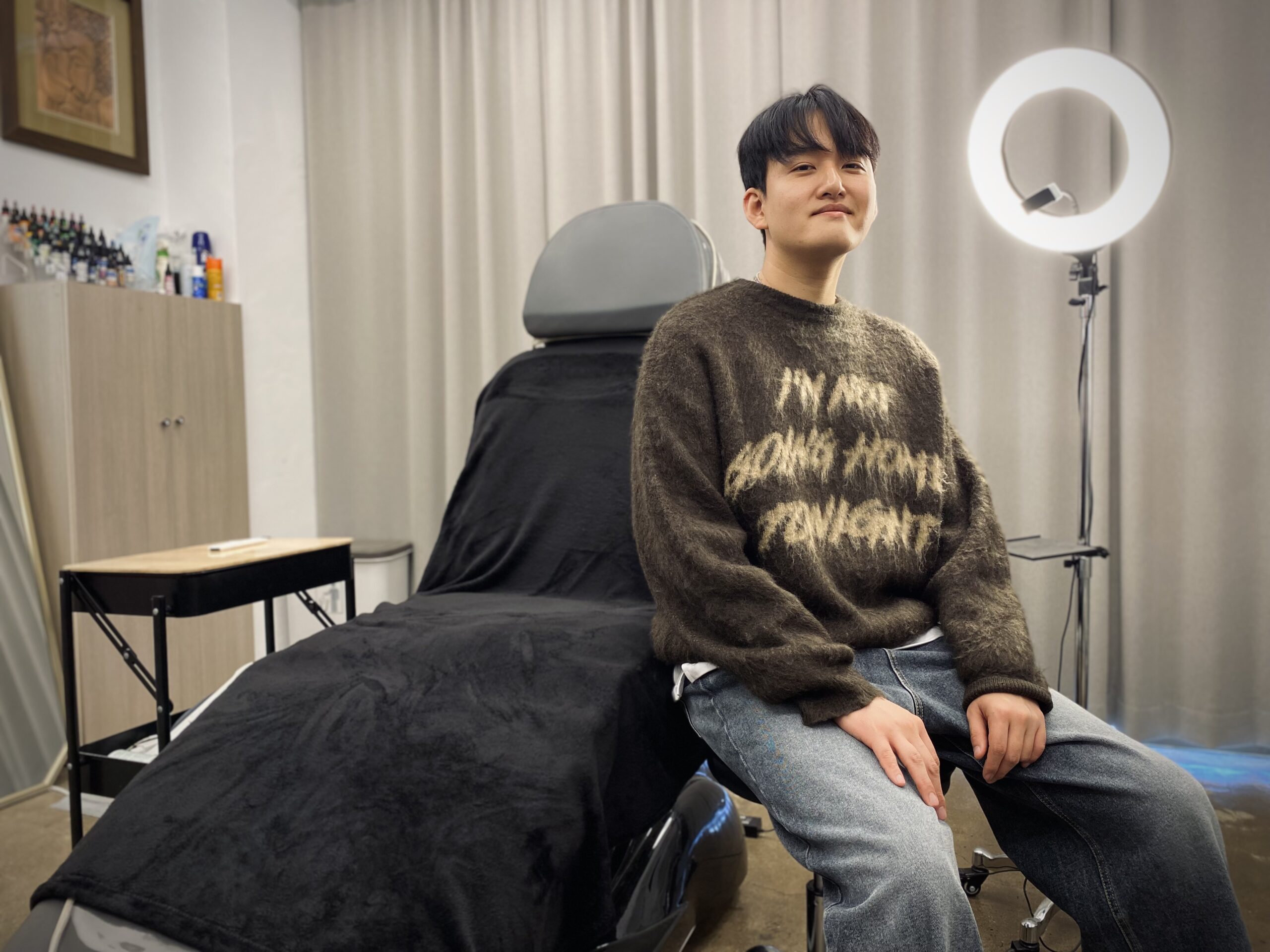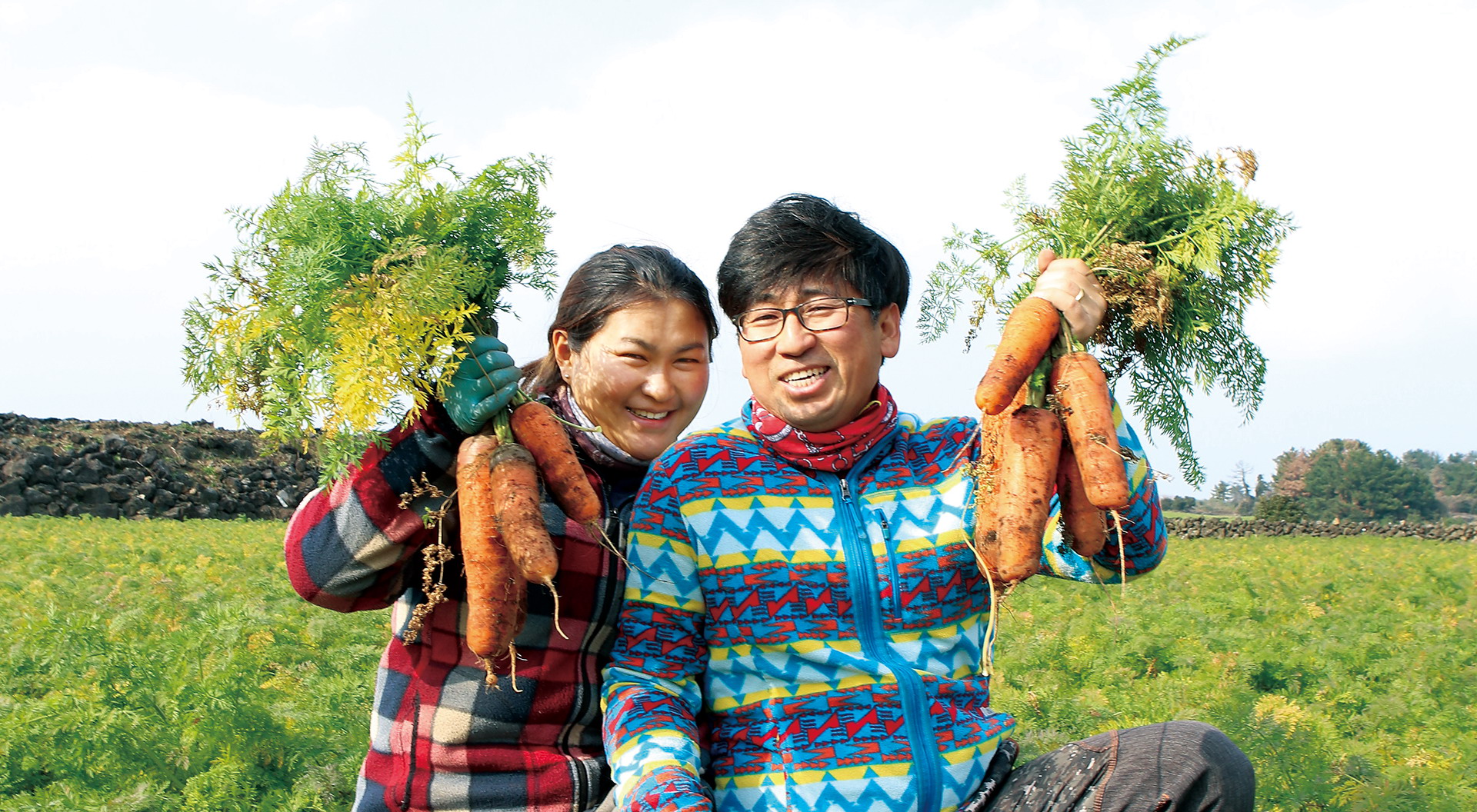Hansalim: The Origin of Korea’s Eco-friendly Local Food Cooperative Movement
Photos courtesy of Hansalim
Though the language/information barrier can be daunting, international residents in Gwangju and Jeollanamdo who want to support local organic food producers have a few options to choose from. This month, we are introducing Hansalim, the oldest and most established national member-based local eco-friendly cooperative, which celebrated its 30-year anniversary in 2016. A one-time lifetime membership fee is required to join, and the application is available online or directly at a local branch. Products can be purchased in the store, over the phone, or online. Hansalim does not sell imported products.
The native Korean words han and salim come together to create the meaning “save all living things.” In 1986, amid concerns about the opening of the agriculture market and food imports of questionable safety, social activist Park Jae Il started Hansalim as a small rice store in Seoul. Since then, the cooperative has expanded into a nationwide partnership between producers and consumers for direct exchange of a wide variety of eco-friendly products. Throughout Korea, more than 150 Hansalim stores serve 550,000 consumer members from over 2,000 producer members, representing every city and province in 23 designated local cooperatives.
While most visible as a storefront, Hansalim member activities extend well beyond the business to include regular meetings with producers, hands-on agriculture experience for adults and children, food education programs, festivals, and giving international solidarity and aid to people in North Korea, Afghanistan, and other countries struggling with food security.
Hansalim opened in Gwangju in 2003 and now has six branches in the city, with others located in Boseong, Mokpo, Muan, Suncheon, and Yeosu. The five Gwangju districts currently have around 10,000 citizen cooperative members, with community representatives at the monthly meetings to plan the production targets that strive to avoid food waste. According to the proportion of the population in each area, 100 volunteer board members are elected independently by members.
Park Seon-hwa, the current chairperson of Gwangju Hansalim’s board of directors, has been an active leader for seven years in the rice field and agriculture education project at Ilgok-dong’s Hansaebong Dure nature reserve. Last year, she started her two-year term as chairperson at the Gwangju office headquarters, also based in Ilgok-dong. At a neighborhood café on a chilly February afternoon, we sat down with Park to find out more about the cooperative’s regional activities.
“Rather than just ‘producers,’ each region calls themselves a ‘community,’” Park said. “In Haenam, there is the sweet potato community; in Damyang, there is the bamboo forest community; and there are others. Once a month, they organize roundtable discussions to set price and quantity goals for products in that area. Through the spirit of Hansalim, the communities also have workshops and back-to-the-land education so members can be ‘real’ consumers and producers.”
Members who do not attend meetings or workshops still have the opportunity to visit regional food producers before buying their products, scheduling appointments that match with the growing season. Park said that there is also a special focus on organized programs for children.
“Under the name ‘Life School,’ we organize overnight camps for members’ children during summer and winter vacations,” Park said. “They visit producers, hear their stories and have direct experience. For example, in the winter, they can help persimmon growers take insects off the persimmon skin.”
Since Hansalim focuses on selling only domestic products, Park explained a few of the challenges faced by the cooperative. A rice-saving initiative has been necessary to fight the negative impact from the opening of the rice market, which she said threatens Korean farmers’ livelihoods. Another challenge is the increase in single and childless people living alone and consuming more processed and instant food not sold by the cooperative. These and other issues contribute to product price fluctuation. Hansalim is also working to resolve a local distribution limitation.
“The local and organic food movement is very important,” Park said. “Take sweet potatoes, for example. There are producers in Gyeonggi-do and in Haenam, Muan, and Hampyeong. Those places are local to Gwangju. However, the government makes us send it all to our distribution center in Anseong, and then send it all the way back to Gwangju. This consumes too much time and energy. Jeo- llanam-do still cannot get totally fresh food, so we are in the process of changing the distribution system.”
Hansalim’s wide network includes related cooperatives and peasant groups such as the My Sister’s Garden plots run by the Korean Women Peasants’ Association and the Catholic Farmers’ Association. They often share the same fields with these producers and sell the product under their respective brands, particularly when there is left-over produce that can still be sold. Additionally, according to Park, many small farmers can rely on Hansalim to sell their produce and keep them more stable.
The established cooperative was at the forefront of the national organic law created under former President Kim Dae-jung’s administration. Hansalim continues to fight for awareness about imported genetically modified (GMO) products and overall food safety and security in Korea.
For more information on activities, store locations, and how to join, please visit Hansalim’s English website: http://eng.hansalim.or.kr and Gwangju website: http://gwangju.hansalim.or.kr/. You can also follow Hansalim on Facebook and Twitter.
Hansalim Branches in Gwangju
Dong-gu Branch
Dongmyeong-ro 20-beongil 43-5, Dong-gu, Gwangju
Telephone: 062-224-3539
Opening Hours: Mon–Sat: 10 am – 8 pm, Sundays closed
Suwan Branch
Jangdeok-ro 40-beongil 7, Gwangsan-gu, Gwangju
Telephone: 062-956-6285
Opening Hours: Mon–Fri: 10 am – 8 pm, Sat~Sun: 10 am – 6 pm
Bongseon Branch
Posco Apartment 2 #107, Yongdae-ro 53-beongil 9, Nam-gu, Gwangju
Telephone: 062-672-6285
Opening Hours: Mon–Fri: 10 am – 8 pm, Sat: 10 am – 6 pm, Sundays closed
Buk-gu Branch
Ilgok Maeul-ro 21, Buk-gu, Gwangju
Telephone: 062-575-6500
Opening Hours: Mon–Fri: 10 am – 8 pm, Sat~Sun: 10 am – 6 pm
Sangmu Branch
Hoban Regency Ville #105, Sangil-ro 55, Seo-gu, Gwangju
Telephone: 062-384-6285
Opening Hours: Mon–Fri: 10 am – 8 pm, Sat: 10 am – 6 pm, Sundays closed
Pungam Branch
Moa Apartment #108, Pungam1-ro 20, Seo-gu, Gwangju
Telephone: 062-652-6285
Opening Hours: Mon–Fri: 10 am – 8 pm




